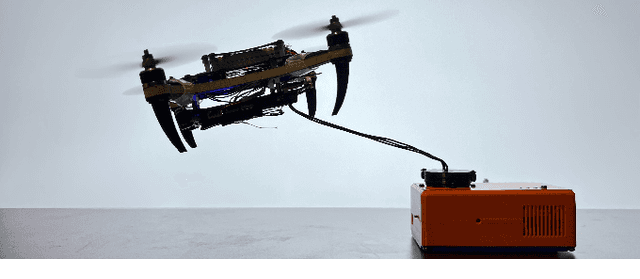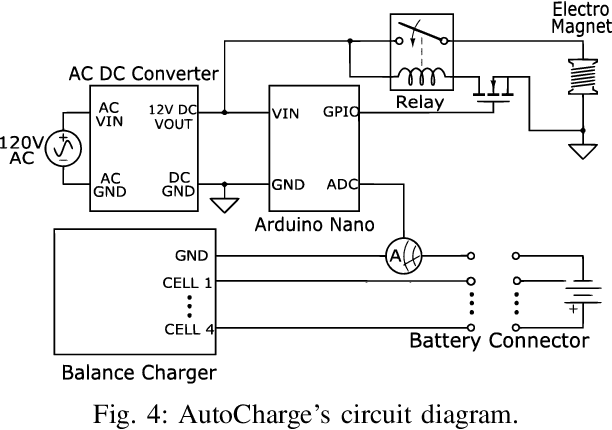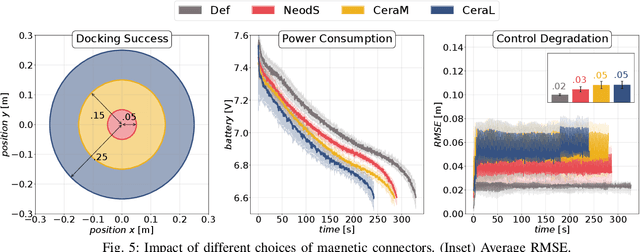Roshan Balu T M B
Experimental System Design of an Active Fault-Tolerant Quadrotor
Apr 09, 2024Abstract:Quadrotors have gained popularity over the last decade, aiding humans in complex tasks such as search and rescue, mapping and exploration. Despite their mechanical simplicity and versatility compared to other types of aerial vehicles, they remain vulnerable to rotor failures. In this paper, we propose an algorithmic and mechanical approach to addressing the quadrotor fault-tolerant problem in case of rotor failures. First, we present a fault-tolerant detection and control scheme that includes various attitude error metrics. The scheme transitions to a fault-tolerant control mode by surrendering the yaw control. Subsequently, to ensure compatibility with platform sensing constraints, we investigate the relationship between variations in robot rotational drag, achieved through a modular mechanical design appendage, resulting in yaw rates within sensor limits. This analysis offers a platform-agnostic framework for designing more reliable and robust quadrotors in the event of rotor failures. Extensive experimental results validate the proposed approach providing insights into successfully designing a cost-effective quadrotor capable of fault-tolerant control. The overall design enhances safety in scenarios of faulty rotors, without the need for additional sensors or computational resources.
AutoCharge: Autonomous Charging for Perpetual Quadrotor Missions
Jun 08, 2023



Abstract:Battery endurance represents a key challenge for long-term autonomy and long-range operations, especially in the case of aerial robots. In this paper, we propose AutoCharge, an autonomous charging solution for quadrotors that combines a portable ground station with a flexible, lightweight charging tether and is capable of universal, highly efficient, and robust charging. We design and manufacture a pair of circular magnetic connectors to ensure a precise orientation-agnostic electrical connection between the ground station and the charging tether. Moreover, we supply the ground station with an electromagnet that largely increases the tolerance to localization and control errors during the docking maneuver, while still guaranteeing smooth un-docking once the charging process is completed. We demonstrate AutoCharge on a perpetual 10 hours quadrotor flight experiment and show that the docking and un-docking performance is solidly repeatable, enabling perpetual quadrotor flight missions.
 Add to Chrome
Add to Chrome Add to Firefox
Add to Firefox Add to Edge
Add to Edge